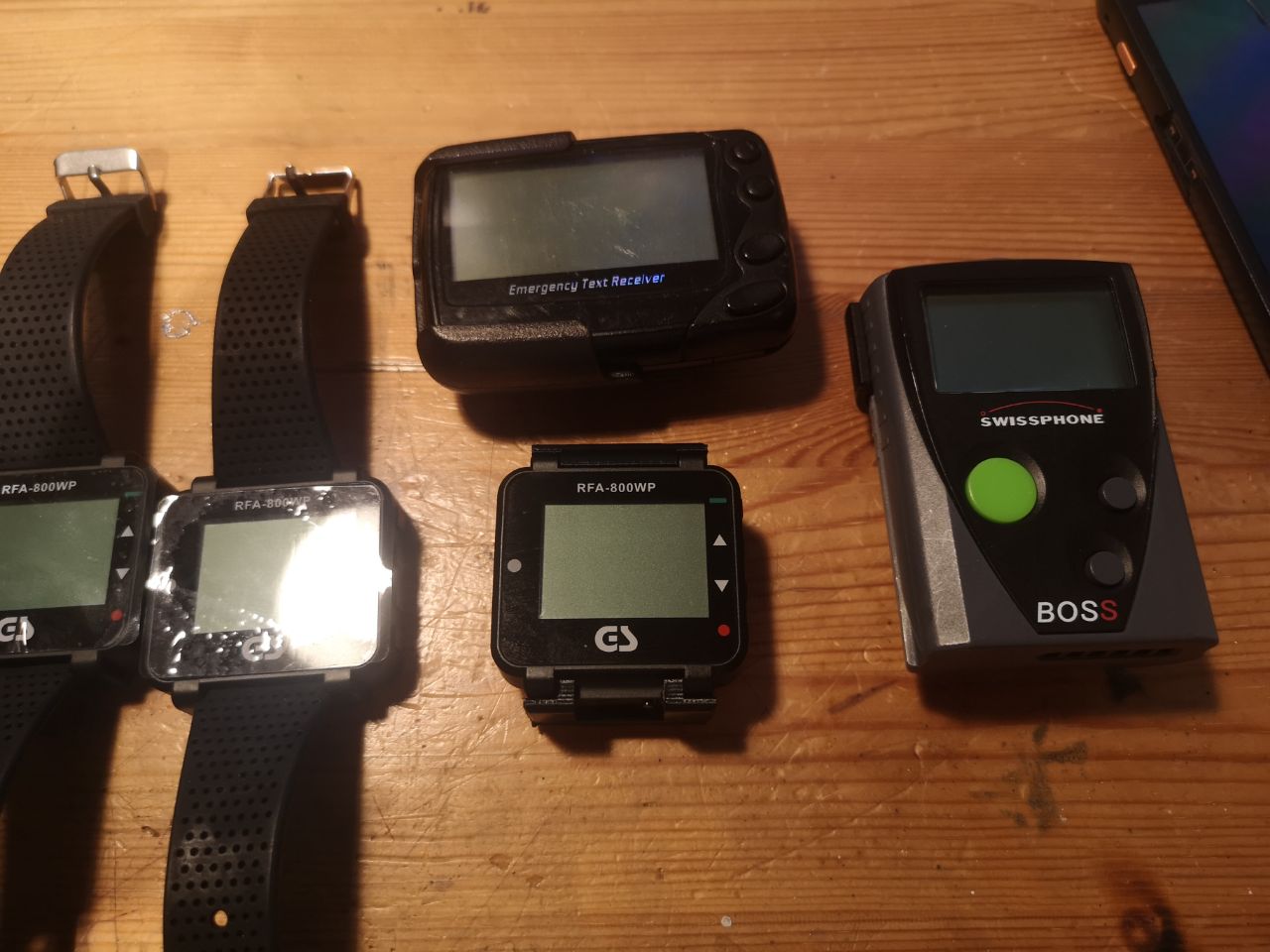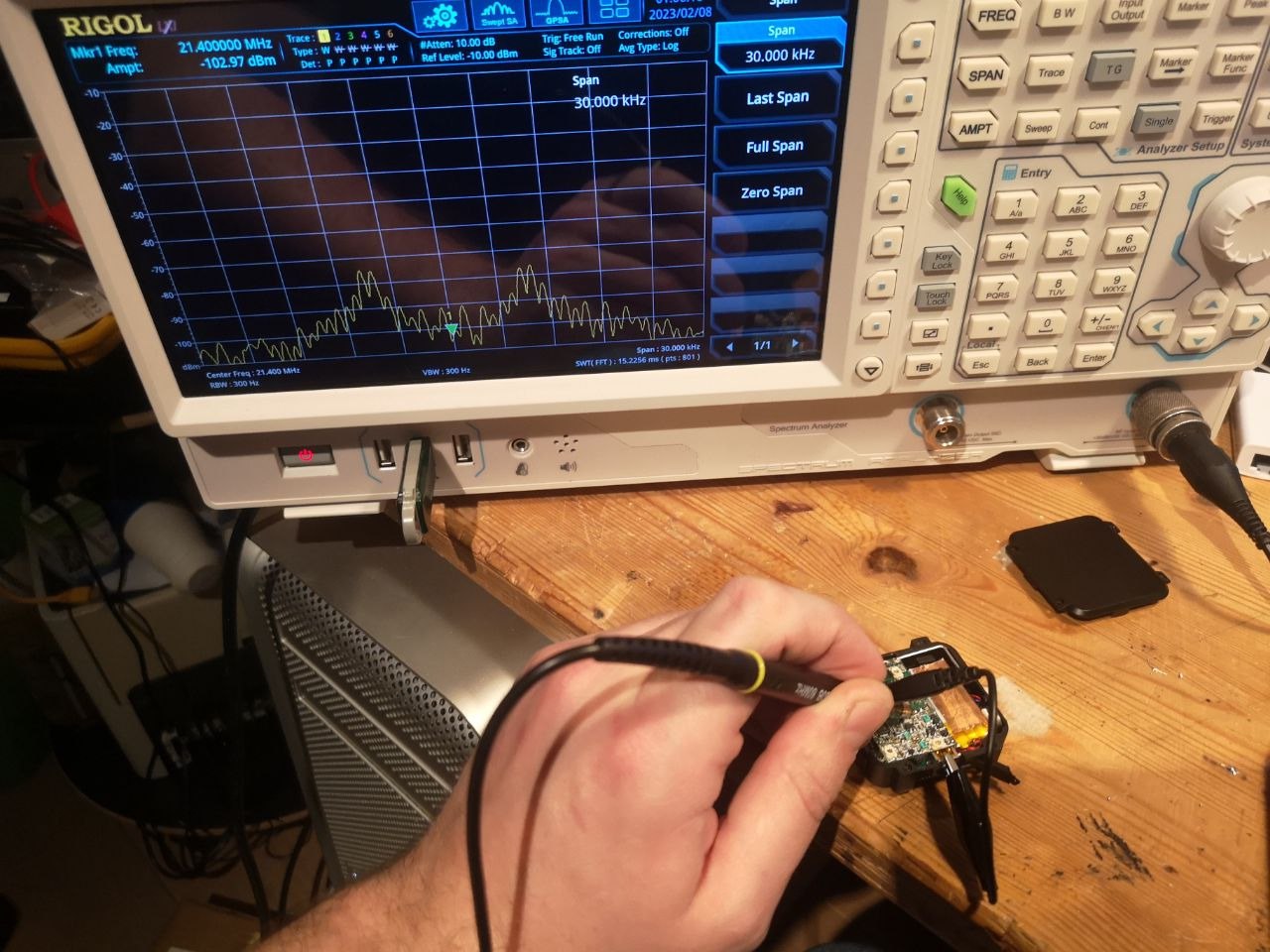Inhaltsverzeichnis
Alphapoc 801W
Overview
This Alphapoc is quite similar to the 602R, both in construction and in internal structure. Most of the user interface is the same as the 602, and it can be programmed with the same software, and the same programming dongle.
3D Printed Clip
As I wouldn't see too many people wearing this as a watch, I designed a small belt clip. You must remove the wrist straps with a small needle (poke it through the holes on either sides of the pagers, where the straps are attached, they're springy attachments). Here is the file: Watch pager belt clip
UHF Ham Mod
Those pagers can sometimes be found on UHF, but adjusted for 459MHz. Setting the Rx frequency back to 439.98750MHz works, but the antenna is highly desensitized and the PLL might not lock everytime. Here is a small guide for tuning one back on our bands.
Tools needed:
- Spectrum Analyser
- Tweezers
- Soldering iron
- RF tuning screwdriver (or anything not metal to turn the trimmers)
- Program the pager on 439.98750MHz.
- Replace capacitor marked 1 with a 6.8pF one.
- Turn the pager on.
- Place a probe on 2, IF filter input (I used an 80MHz oscilloscope probe, ground on the USB connector) connected to a spectrum analyser, central freq 21.4MHz, span 30kHz. An SDR might just do the trick, careful about the input protection though!
- Key in a POCSAG transmitter to a 600Hz tone (the test button is quite handy on unipager). Lowering the power might also be a good idea to avoid saturating the receiver.
- The two POCSAG peaks should show up. Adjust trimmer numbered 3 for maximum signal strength. I really recommend a plastic screwdriver as a metal one will always detune the Rx antenna.
- Optionally, adjust trimmer 4 if the frequency is a bit off.
IF and ONLY IF there is absolutely no signal being received, the PLL might not be locking. I found adjusting trimmer 5 helps, but it's very sensitive and can sometimes make matters worse!


